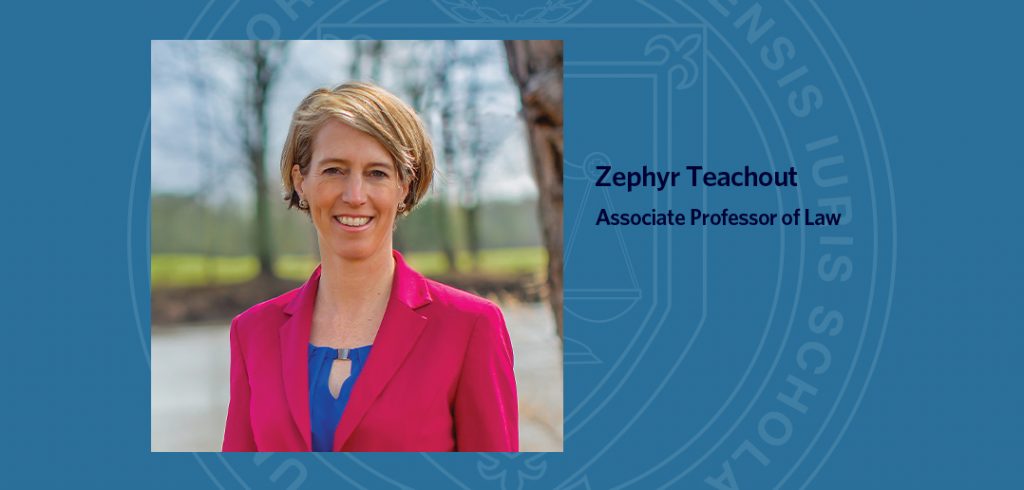Professor Zephyr Teachout examines big tech and governmental regulation in an op-ed for The Atlantic.
Big Tech companies are facing an existential crisis, but they are doing everything they can to resist it and keep things just as they are. Facebook and Google, in particular, want to keep playing three roles: essential infrastructure, publisher, and targeted-ad mogul. They want to be perceived as neutral platforms, while also being perceived as civically responsible, while also maximizing surveillance and the targeting of ads. That’s impossible—so the government has to force them to choose a new business model; or, rather, it has to choose for them.….That’s why 230 repeal is ultimately just a sideshow. The real way forward—bear with me—is making these companies look a bit more like the platforms that 230 envisioned; that is, forcing them to embrace their role as essential infrastructure.This is the path that the United States has taken in the past when faced with privately owned goods or services that have become indispensable to public life—such as roads and railroads—and the path that has defined its approach to communications infrastructure in particular. State statutes from the mid-18th century required telegraph companies to treat all comers equally. Graham Bell got a telephone patent in the 1870s; when it expired in the 1890s, the telephone industry took off in the U.S. Then in 1910, Congress passed the Mann-Elkins Act, regulating the telephone-service providers as “common carriers” because of their central role in communication. They could still be privately owned, but they took on a public obligation not to discriminate among different users.

